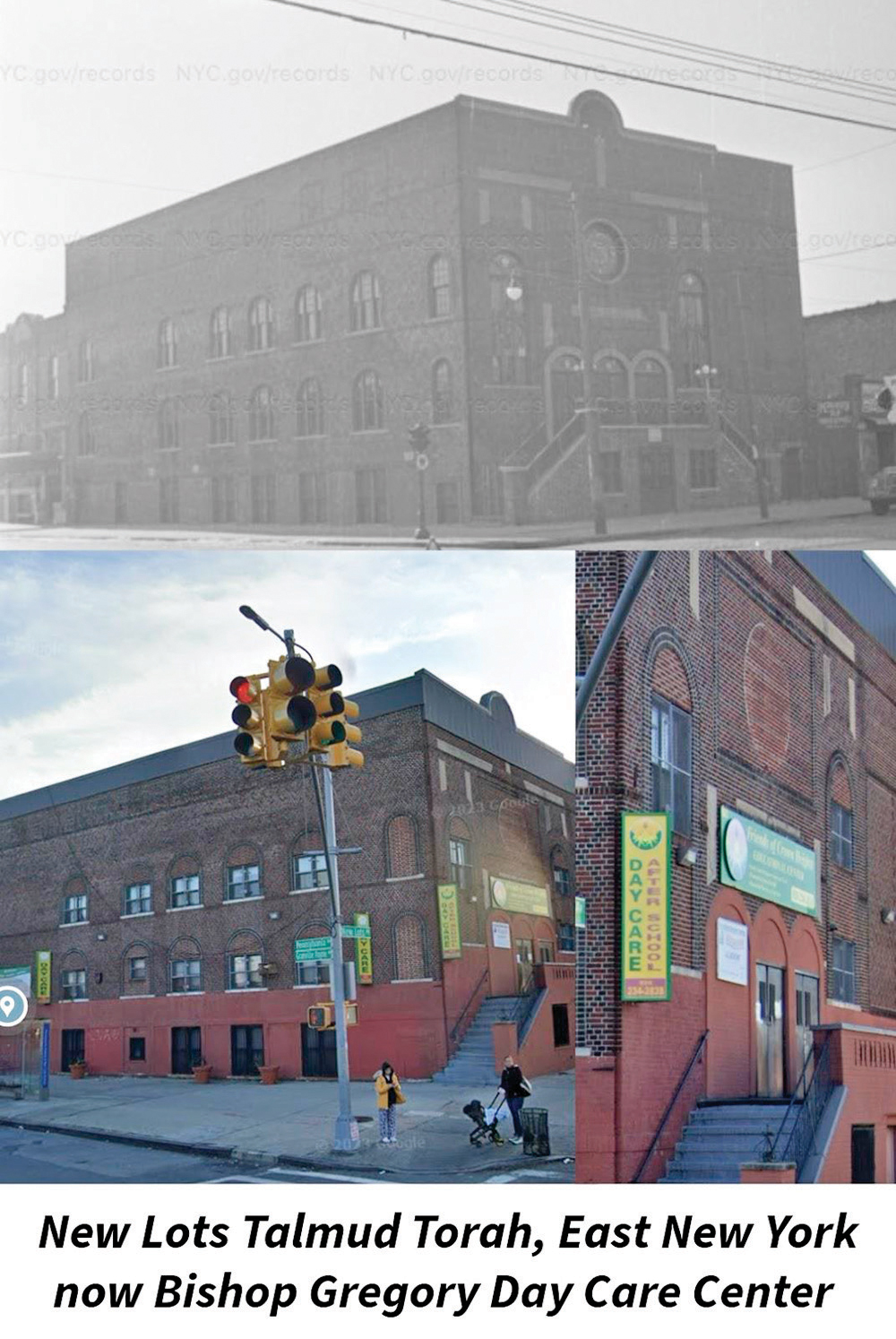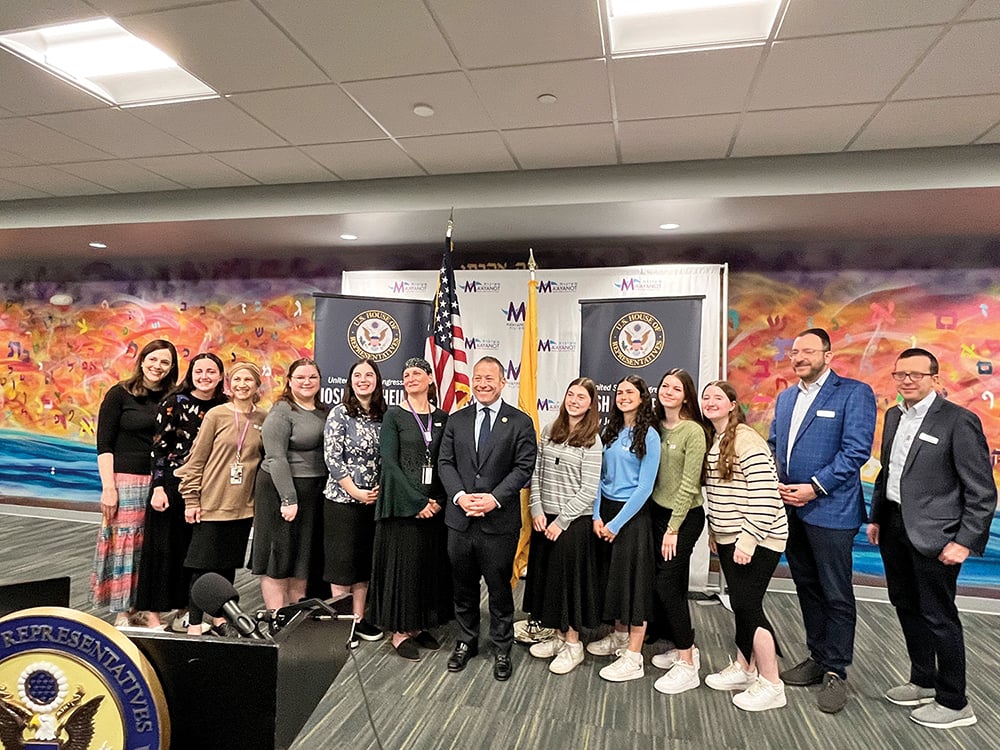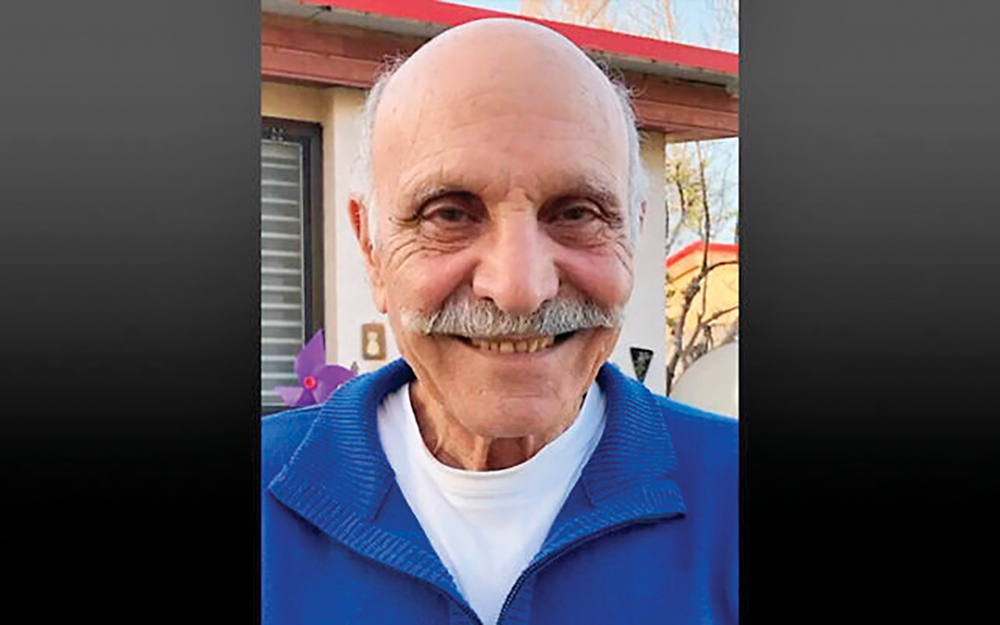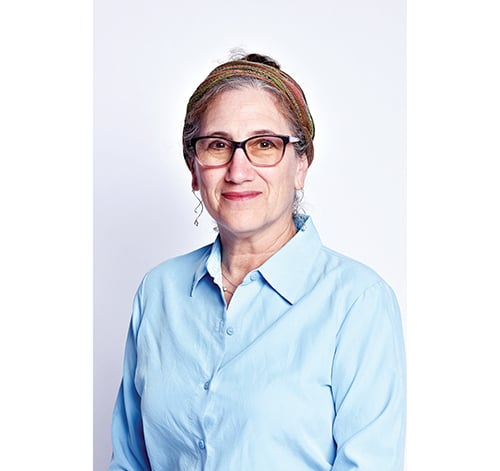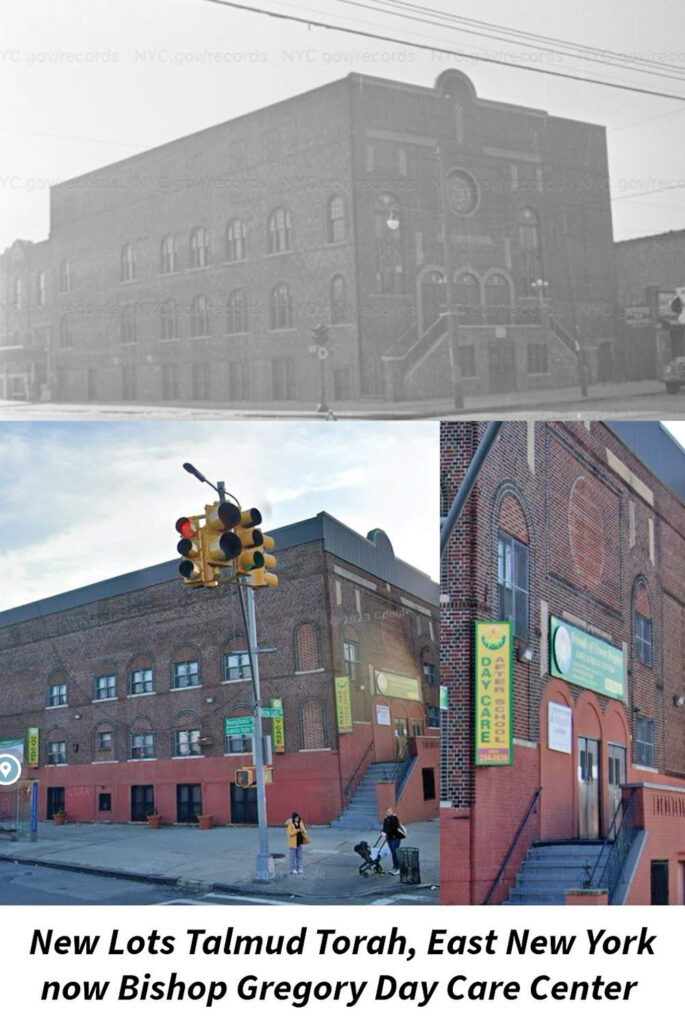
When I was growing up in Highland Park, I remember fondly our monthly family drive to visit my grandparents in Brooklyn. We would first stop in Borough Park or Flatbush to load the car with kosher meat, the latest Artscroll works from Eichlers Bookstore, and sometimes some Paskesz candies for me and my siblings. We would then take the side streets to my grandparents’ apartment in the “new” development of Starrett City.
Along the way, we would drive through my father’s childhood neighborhood of East New York, where he would point out all the Jewish sites which were now churches or random stores. I particularly remember a very large shul with a Jewish star carved into the edifice where my father told us he became a bar mitzvah, which is now a Christian day care center.
Through the wonders of Google, I recently researched this shul, which I confirmed from my father was the New Lots Talmud Torah that in its heyday had hundreds of students and two Shabbat morning minyans in the upstairs and downstairs with some 500 people davening in each. In the early 1960s, as the neighborhood changed, the shul fell into disrepair and eventually was sold, becoming the Bishop Gregory Day Care Center. On Google Maps you can still see it, mostly intact, although many of the windows and the Jewish star on the building have been paved over.
In my hometown of Highland Park/Edison, all three major shuls when I was a kid were continuations of synagogues in neighboring New Brunswick which had closed down. Similarly, where I now live in West Orange, the largest shul, affectionately known as the “alphabet shul,” AABJ&D, began as a merging of three shuls from nearby Newark and since then has collected Torah scrolls and yahrzeit plaques from a number of other Newark synagogues. And two of the most prominent Jewish day schools in Essex and Bergen counties are continuations of schools originally in Newark and Paterson.
This phenomena encapsulates the story of American Jewry in the 20th century. Jews move to a community, build Jewish institutions, and then as their personal economics and/or the nature of the neighborhood changes, flee to the suburbs to start anew. I share this here not just for nostalgia or as a Jewish history lesson but because I wonder if history will repeat itself and my grandchildren will someday have a similar experience pointing out the shuls and schools from their “old” neighborhoods in West Orange, Highland Park and Teaneck. I wonder if our days in this goldener medeina of America are numbered.
The rise of antisemitism on our college campuses and in our Jewish communities has caused many of us to feel uneasy. A study just released by Tel Aviv University and the Anti-Defamation League (tiny.cc/antisemitism2023), reported a 103% increase in antisemitic incidents in the U.S. this past year while “nearly three-fourths of American university students have said they experienced or witnessed some form of antisemitism since the academic year began.” A shocking number! As believing Jews, we all know that our future lies in Israel. Perhaps this future is much closer than we think.
Rabbi Meir Simcha of Dvinsk wrote about this in his classic Torah commentary, the “Meshech Chochmah.” In Parshat Bechukotai 26:44, he described the situation of the Jew in exile.
Israel has been among the non-Jews for many, many years — none of the world’s inhabitants could believe the Jewish nation would exist for such a long time in such a miraculous fashion; it is incomprehensible to any intelligent person. For the thousands of years that swept over the diminutive nation, so weak and helpless, it was the way of hashgacha that they would rest for close to 100-200 years. Afterward, a storm wind would emerge and give rise to many waves; it would destroy, decimate, wear them out, demolish and sweep them away without mercy. The Jews would flee to a distant place and there they would reunite into a nation.
They would grow and rise up, and their wisdom would lead them to success until they would forget they were strangers in a strange land. They would think this is the place from which they originated, and lose hope for Hashem’s spiritual salvation at the appointed time. There, an even stronger storm wind would come and it would remind them with a raging sound and an earthquake: “You are a Jew. Who made you into a man? Go for yourself to a land you do not know.”
When we use our intellect to examine history, we see the alternating pattern of the Jew’s situation and his existence among the nations. This is for two reasons: to keep the true religion and its purity, and for the nation’s continued existence … the nation will abandon religious study and study foreign languages; they will think that Berlin is Jerusalem …. Then a storm wind will come and a tempest will uproot the nation from its main root and put it in a distant nation whose language they never learned.
In almost prophetic words composed in the 1920s, he wrote, “They will think that Berlin is Jerusalem.” Just substitute Columbia or Harvard or Teaneck or West Orange for Berlin. A sobering thought as we watch the world erupt on our college campuses and in our Jewish neighborhoods.
Many of us still live in the Diaspora for many valid reasons; I include myself although I wonder at times if I am a hypocrite. We can never forget that our existence here is temporary. So what are we to do?
I recently heard Rabbi Ari Berman, the president of my alma mater Yeshiva University, on The Times of Israel podcast, as he described the brave steps that Yeshiva has taken in these trying times. He talked about a multipronged approach advocating for college presidents to join together in signing a public letter and taking action against antisemitism, opening up the doors of Yeshiva University by extending admissions deadlines for students who wish to transfer from the most egregiously antisemitic schools, and opening up a new branch of Yeshiva University for the first time in Israel.
I believe this approach by Rabbi Berman can serve as a template for us. Firstly, we must enlist allies from the non-Jewish world both from politics or popular culture, and regular people we meet at work or in the grocery store or at the gas station, in order to fight antisemitism. I have written about this in these pages in the past. Secondly, we must open our doors, both figuratively and literally, to Jews of all types and join together as one Am Yisrael. We live in a post- denominational world where institutional allegiances no longer matter much to most of our Jewish brothers and sisters. If we engage all Jews we interact with in person and online in a nonjudgmental fashion, with cords of love as our prophets described, we can make our people stronger. And finally, we should all begin to plan on some level for when we will be going to Israel. This will mean different things for each of us but Israel should never be far from our minds.
As Rav Yosef Dov Soloveitchik said in his classic work, “Kol Dodi Dofek,” our beloved is knocking through the establishment of the state of Israel. God is knocking in many ways. And one of those knocks is that in Israel, דם יהודי אינו הפקר, Jewish blood is no longer cheap. Theodore Herzl’s dream of the Jewish state being the solution to the age-old problem of antisemitism is unfortunately not yet true. But in Israel, we have agency. We have a Jewish nation with a Jewish army to fight back against the forces of hate. God is knocking on the door for us to return. The question is, when will we answer.
Rabbi Tzvi Pittinsky is the director of educational technology at Yeshivat Frisch in Paramus. He can be reached at [email protected].


